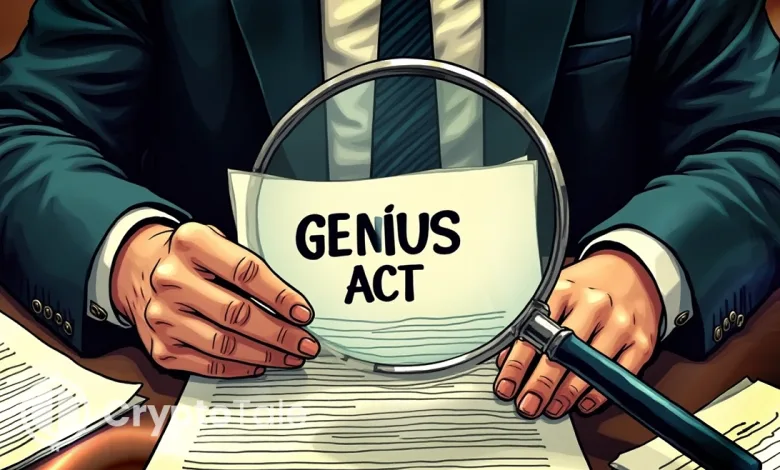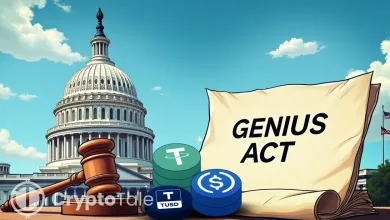Treasury Opens Public Comment to Define Stablecoin Rules

- Treasury launches 30-day comment window to shape stablecoin rules under GENIUS Act.
- The GENIUS Act leaves taxation and foreign issuer approval unresolved for Treasury guidance.
- Senator Lummis pushes market structure bill as Treasury shapes stablecoin regulations.
The U.S. Department of the Treasury has opened a fresh round of public consultation, aimed at shaping how stablecoins will operate under the Guiding and Establishing National Innovation for U.S. Stablecoins (GENIUS) Act.
The move opens a 30-day window for responses, which is a transition from legislative text to enforceable rules. The outcome will determine key details, including reserve requirements, foreign issuers’ eligibility, and compliance with anti-money laundering laws.
From Law on Paper to Practical Implementation
The GENIUS Act, signed into law by President Donald Trump in July 2025, was the first U.S. legislation dedicated specifically to payment stablecoins. While the law provides broad directives, it tasks the Treasury with drafting detailed regulations.
Officials said the goal is to encourage innovation while safeguarding consumers, ensuring financial stability, and limiting illegal finance risks. According to the Treasury advance notice of proposed rulemaking, stakeholders can submit data, insights, and concerns to guide the process.
The comment period will close on October 20. The agency stressed that this request does not create new obligations but provides an opportunity to have a say on implementation.
Key Issues Under Consideration
Treasury’s Advance Notice of Proposed Rulemaking (ANPRM) outlines several unresolved issues under the GENIUS Act. Officials noted that the Act does not define the federal tax treatment of payment stablecoin. Similarly, the Act introduces a way for foreign issuers to launch stablecoins in the U.S., though the way for approval is unclear.
Other matters for discussion include whether certain marketing practices should face restrictions, how to align state and federal oversight, and how to apply the Bank Secrecy Act, anti-money laundering, and sanctions requirements to stablecoin operations. Treasury is also seeking input on whether comparable foreign regulatory models should inform U.S. rules.
This consultation supports the department’s August 18 request for comment on methods to detect illicit activity involving digital assets, which is open until October 17. By pairing the two processes, Treasury aims to address both regulatory clarity and enforcement mechanisms.
Related: Tether Unveils USAT under GENIUS Act, Appoints Bo Hines as CEO
Broader Legislative Context
The GENIUS Act was passed during a legislative push nicknamed “Crypto Week,” when Republican lawmakers advanced multiple digital asset bills through Congress. Trump signed the Act into law on July 18, supported by executives from Coinbase, Circle, Gemini, and Kraken.
Implementation is expected to start either 18 months after signing or 120 days after regulations are finalized, placing the timeline for enforcement in late 2026 at the earliest. Lawmakers are also working on complementary legislation.
Led by Senator Cynthia Lummis, the Senate Banking Committee is expected to vote this month on a broader market bill called the Responsible Financial Innovation Act. That measure is designed to clarify the jurisdiction of U.S. financial agencies in overseeing digital assets.
Industry groups are also weighing in. Rob Nichols, president and CEO of the American Bankers Association, warned after the GENIUS Act’s passage that stablecoins could shift deposits away from banks. He said the association would continue its advocacy during rulemaking to ensure that the framework balances innovation with the preservation of traditional banking functions.
Meanwhile, the Treasury’s decision to open a 30-day public comment period on the GENIUS Act is the first step toward transforming legislative text into binding regulation. By requesting input on reserves, foreign issuers, consumer protection, taxation, and compliance rules, officials are saying that the final outcome will depend on stakeholder feedback. With other crypto bills advancing in Congress, these decisions will influence the foundation of the U.S. stablecoin market.




